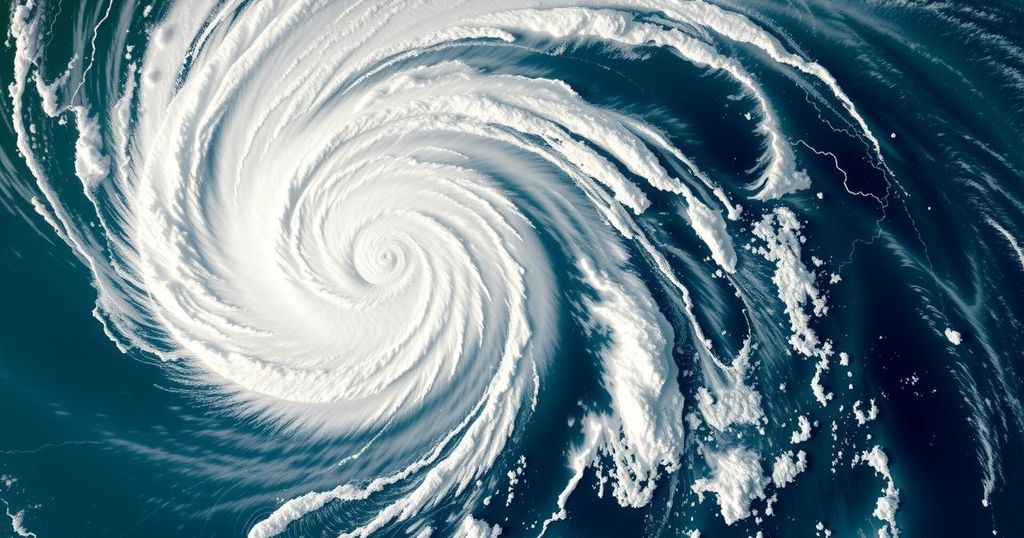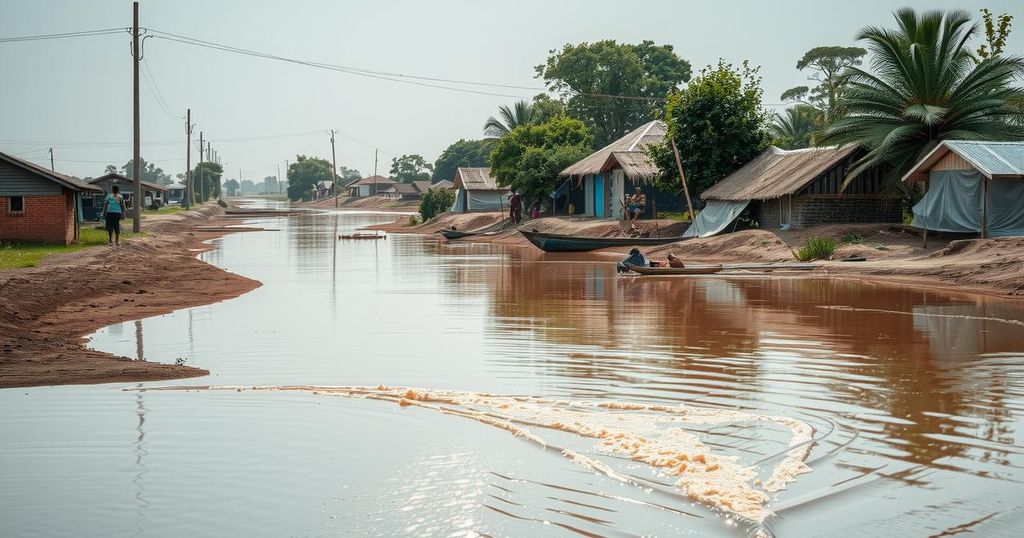Tropical Cyclone Chido: Historic Intensification and Threat to Madagascar and Mozambique
On December 12, Tropical Cyclone Chido made landfall on Agalega as the strongest cyclone in over 50 years. Rapidly intensifying from wind speeds of 111 km/h to 222 km/h, it is currently heading toward Madagascar, Mayotte, and Mozambique, where residents are preparing for severe weather conditions. Alerts have been issued as the cyclone’s impact is expected to result in heavy rainfall and strong winds in these regions.
Tropical Cyclone Chido has rapidly intensified, making landfall on Agalega on December 12, 2024, as the strongest cyclone to impact the island in over 50 years. This intense weather system emerged in the Southwest Indian Ocean Basin on December 10 and quickly escalated its wind speeds from 111 km/h (69 mph) to an alarming 222 km/h (138 mph) within 24 hours. As a category 4-equivalent cyclone, it is expected to traverse through the northern part of Madagascar and could make landfall in Mozambique by December 15.
The cyclone formed as the third named storm of the 2024/25 cyclone season, and its approach has raised concerns for the regions it is forecasted to affect, particularly Madagascar and Mozambique. Enhanced imagery showcased a compact cyclone with a well-defined eye, presenting a serious concern for coastal populations. Wind speeds are predicted to remain high, although weakening is anticipated as the cyclone nears Madagascar due to the cooler ocean temperatures, which could cause a temporary decline in its intensity.
By December 12, Tropical Cyclone Chido had notably impacted Agalega, which has a small population of 330. The previous cyclone to inflict significant damage on the island was Cyclone Andry in 1983, a situation that underscores the severity of Chido’s impact. As it continues to progress toward Mayotte and Mozambique, weather downgrades are likely for Madagascar, leading to heavy rain and potentially destructive conditions in the northern regions. Forecasters continue to monitor Chido closely, issuing alerts for the affected areas, including Mayotte and the Comoros, as conditions are expected to deteriorate in the coming days.
Residents are advised to stay informed through their national meteorological services as Chido approaches, emphasizing the necessity of preparedness in anticipation of the imminent weather disturbances anticipated from this emerging cyclone.
The Southwest Indian Ocean basin experiences several cyclones each season, with significant impacts on island nations such as Madagascar, Mauritius, and Mozambique. Tropical Cyclone Chido exemplifies the intensity that can occur in this region with its rapid formation and intensification, marking it as an extreme weather event that necessitates close observation and public safety measures. The historical context of previous storms provides insight into potential damages and disruptions Chido could potentially cause, particularly in vulnerable coastal communities.
In conclusion, Tropical Cyclone Chido has demonstrated remarkable intensity and poses serious threats to the islands it is set to affect. With historical precedence highlighting the dangers posed by similar storms, it is crucial for residents in impacted regions to remain vigilant and adhere to meteorological advisories. The cyclone’s trajectory toward mainland Africa, particularly Madagascar and Mozambique, signifies a looming crisis that requires preparedness and response strategies. Continuous updates from authoritative meteorological sources will be vital in informing and protecting residents in the cyclone’s path.
Original Source: watchers.news




Post Comment